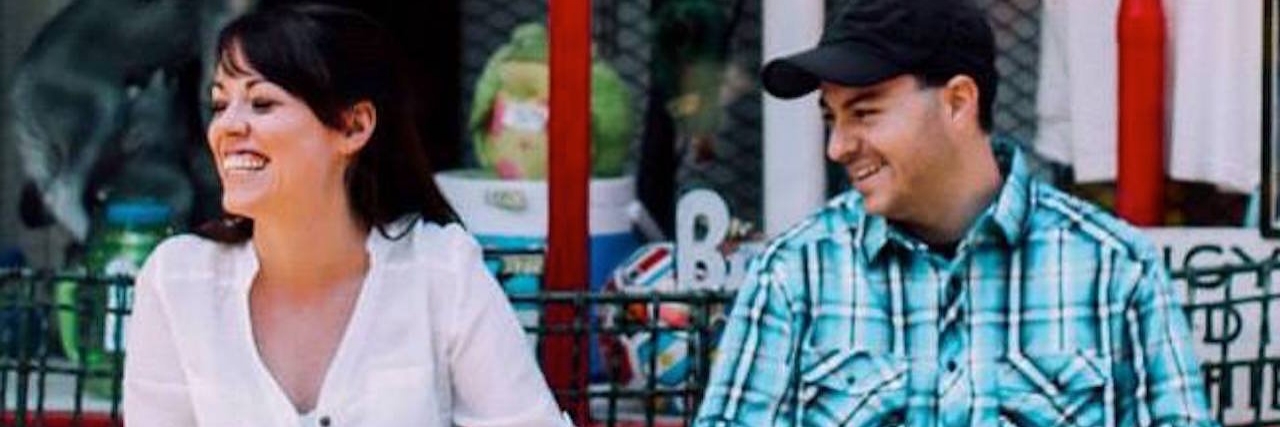I was diagnosed with scoliosis when I was 14. Doctors put me in a brace for a year, and my spine stabilized enough that they didn’t think the curve would grow worse in following years. They were right — the curve didn’t grow, but the pain did. The pain on a daily basis typically borders on unbearable.
I met my husband, Matt, four years ago. We’ve been married for two of those years. Matt is the sparkle in my eyes, the highlight of my mundane moments and the cherry on top of the already-sweet days. For the joy he constantly infuses into my life, I would’ve never thought that difficulties of chronic illness and pain would be something I would share with him early in our marriage.
Every day before I go to work, I wake Matt up so he can help me put a TENS unit on my back. I can’t get through the day without it. If I can make dinner, the kitchen’s undoubtedly a mess at the end, and if it’s a day like any other, I’ve collapsed on the couch under the weight of muscle spasms and extreme nerve sensitivity. Matt does the dishes on most days.
For seven months out of the last two years, I faced a layoff and unemployment, but I still desperately needed expensive and constant physical therapy, exercise equipment and a membership to a gym with a pool.
These aren’t the issues I thought we’d face early in a marriage. I thought we’d be more focused on picking paint colors and where to spend the holidays. I thought we’d be spending money on trips instead of therapy bills. I thought we’d be traveling and exploring and not researching scoliosis therapy on weekends.
Beyond the physical pain, I have fought intense sadness and diagnosed depression. And now, as the pain remains unrelenting, I have watched my husband fight his own battles over it. He sees me daily as I try to make the most of living within a painful existence. It upsets him. Most days it feels like we’re losing this battle. Some of Matt’s favorite activities — hiking, going to concerts — are things I simply can’t do.
So as Matt and I get ready to celebrate our next anniversary, we’re learning something new.
One thing we’ve found to be vital is creating a good support group. We’re lucky to have our families close by, and I don’t want Matt to give up on the things he loves. He works to reach out to other friends about hiking and concerts. We’re finding new activities to do together that involve less activity for me but still allow us to get out of the house and be with people. Isolation and loneliness are brutal realities when you’re faced with chronic illness and pain, and we force ourselves to get out of our surroundings and try to invest in other people in addition to each other.
I’ve learned my self-care is vital to the way I can support my husband. I’ve started doing my exercises and stretches as much for him as for me. And even more, my attitude has needed some major adjustments. As much as the pain feels like it rules my life some days, I have to remember that, ultimately, I rule my life — not my pain. I won’t lie and pretend like I’m not hurting, but I am trying each day to focus on the positive in addition to the pain.
We try to celebrate the small things. So sometimes we’ll go out to eat when it’s a good back day. And sometimes we get a bottle of wine and rent a movie on a horrible back day — because we still have access to medicine, we still have hope that someday we can walk around Europe together and we still hope I’ll be able to stand long enough to go to a concert again.
Until then, we work every day to adjust our attitudes and try our hardest be loving friends and partners.
Imagine someone Googling how to help you cope with your (or a loved one’s) diagnosis. Write the article you’d want them to find. If you’d like to participate, please check out our Submit a Story page for more about our submission guidelines.

